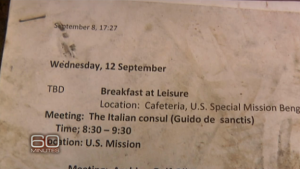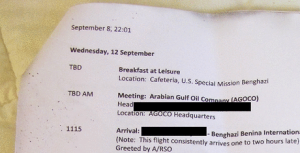Bengh– Blackwater!
You should definitely read the James Risen story describing how the head of Blackwater’s operations in Iraq threatened to kill an investigator into the company’s practices in the period before the Nisour Square. It definitely confirms every concern that has been raised about mercenaries generally and Blackwater specifically.
But I want to look at the frame Risen gave the story, which I suspect few will read closely.
His memo and other newly disclosed State Department documents make clear that the department was alerted to serious problems involving Blackwater and its government overseers before the Nisour Square shooting, which outraged Iraqis and deepened resentment over the United States’ presence in the country.
[snip]
Condoleezza Rice, then the secretary of state, named a special panel to examine the Nisour Square episode and recommend reforms, but the panel never interviewed Mr. Richter or Mr. Thomas.
Patrick Kennedy, the State Department official who led the special panel, told reporters on Oct. 23, 2007, that the panel had not found any communications from the embassy in Baghdad before the Nisour Square shooting that raised concerns about contractor conduct.
“We interviewed a large number of individuals,” Mr. Kennedy said. “We did not find any, I think, significant pattern of incidents that had not — that the embassy had suppressed in any way.”
The reason this is coming out — aside from the fact the government is trying to try the Nisour Square killers again — is to show that contrary to what Patrick Kennedy said after having done a review of security practices in 2007, there had been a pattern of incidents, and they had been suppressed by the Embassy.
Now consider how that reflects on the GOP’s second favorite scandal, Benghazi. Not only was Kennedy the key judge about the events leading up to that event (which is normal — he’s been a key player in State for a very long time; I’m beginning to believe he’s State’s institutional defender in the same way David Margolis was at DOJ), but the question of security oversight is important there: Blue Mountain Group appears to have done its job inadequately (and there are some sketchy things about its contract and contractors).
Benghazi is actually not a bigger scandal than that State suppressed knowledge of Blackwater’s problems. But there does seem to be continuity.


